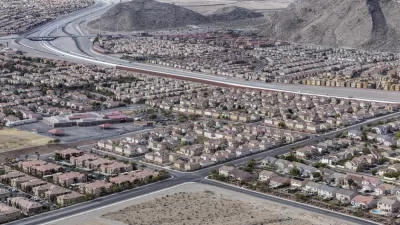Some organizations believe they hold the key to fighting poverty--economic development in the inner cities, which will in turn bring in private investment. But others maintain that both are hard to come by simultaneously.
Inner-city business development, Bartik has written, may be an effective means of relieving congestion and environmental strain in outer-ring communities and increasing tax revenues and amenities in inner cities. But it "is unlikely by itself to significantly increase the employment or earnings of the inner city poor."
Urban planner Lisa Servon concurs, telling Miller-McCune.com, "It's hard to do both economic development and poverty alleviation." Servon's own research on micro-enterprise - defined in the U.S. as businesses employing five or fewer workers and needing less than $35,000 in startup capital - underscores that difficulty.
Servon, the dean of Milano The New School for Management and Urban Policy, has written that starting a small business can lift individuals out of poverty; those businesses, in turn, provide stability and services for their communities. But, she acknowledged, "It's a pretty small group - maybe 3 to 5 percent" of low-income people for whom self-employment represents a realistic path out of poverty.
Servon insists that's not a reason to abandon the strategy. "You're not going to find a silver bullet," she cautioned. "It's going to be a range of solutions" that pulls inner cities back from the economic brink.
FULL STORY: Can Development Reduce Poverty?

Planetizen Federal Action Tracker
A weekly monitor of how Trump’s orders and actions are impacting planners and planning in America.

Map: Where Senate Republicans Want to Sell Your Public Lands
For public land advocates, the Senate Republicans’ proposal to sell millions of acres of public land in the West is “the biggest fight of their careers.”

Restaurant Patios Were a Pandemic Win — Why Were They so Hard to Keep?
Social distancing requirements and changes in travel patterns prompted cities to pilot new uses for street and sidewalk space. Then it got complicated.

Platform Pilsner: Vancouver Transit Agency Releases... a Beer?
TransLink will receive a portion of every sale of the four-pack.

Toronto Weighs Cheaper Transit, Parking Hikes for Major Events
Special event rates would take effect during large festivals, sports games and concerts to ‘discourage driving, manage congestion and free up space for transit.”

Berlin to Consider Car-Free Zone Larger Than Manhattan
The area bound by the 22-mile Ringbahn would still allow 12 uses of a private automobile per year per person, and several other exemptions.
Urban Design for Planners 1: Software Tools
This six-course series explores essential urban design concepts using open source software and equips planners with the tools they need to participate fully in the urban design process.
Planning for Universal Design
Learn the tools for implementing Universal Design in planning regulations.
Heyer Gruel & Associates PA
JM Goldson LLC
Custer County Colorado
City of Camden Redevelopment Agency
City of Astoria
Transportation Research & Education Center (TREC) at Portland State University
Camden Redevelopment Agency
City of Claremont
Municipality of Princeton (NJ)




























